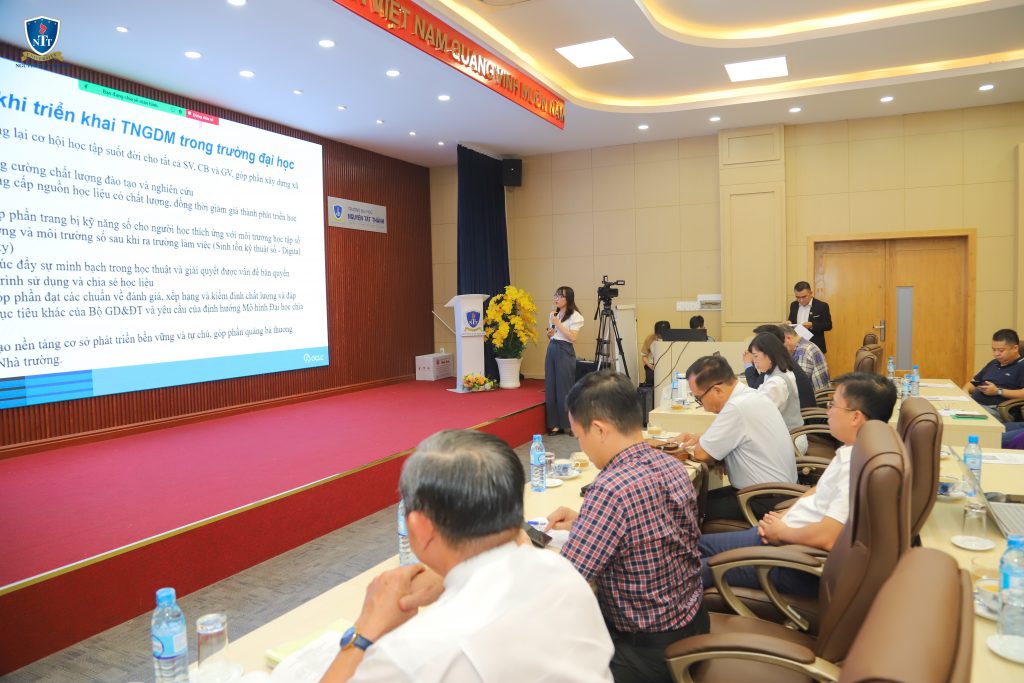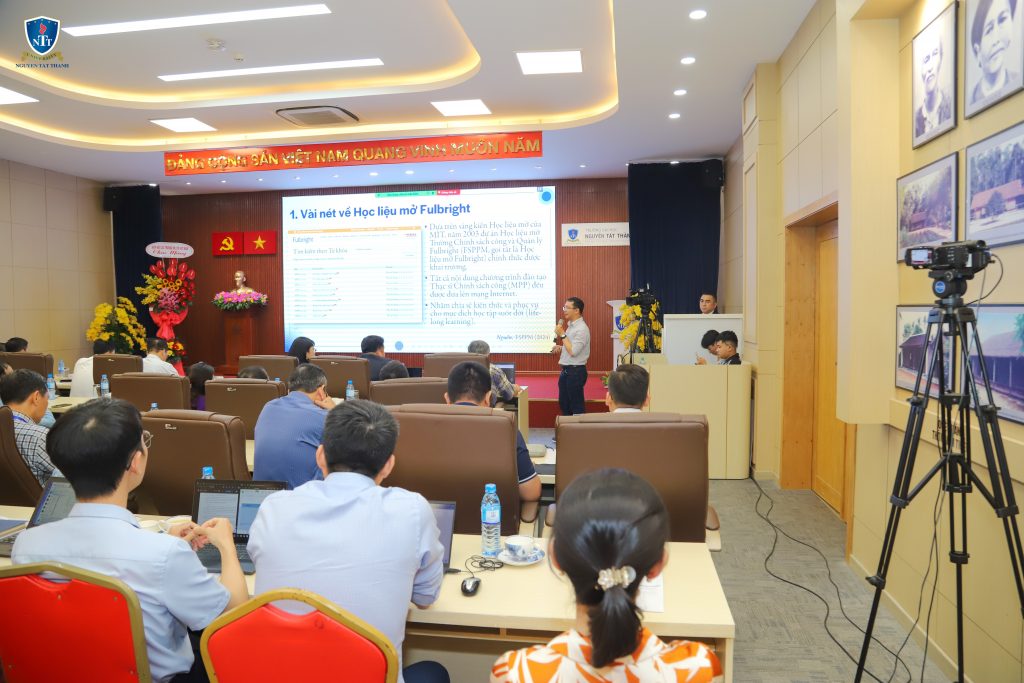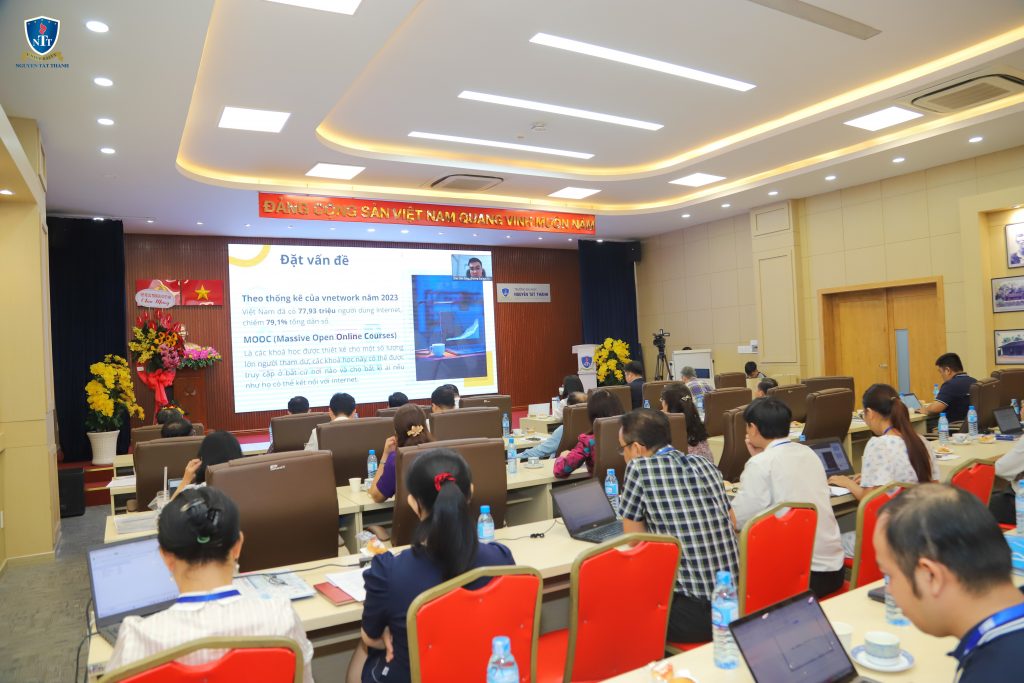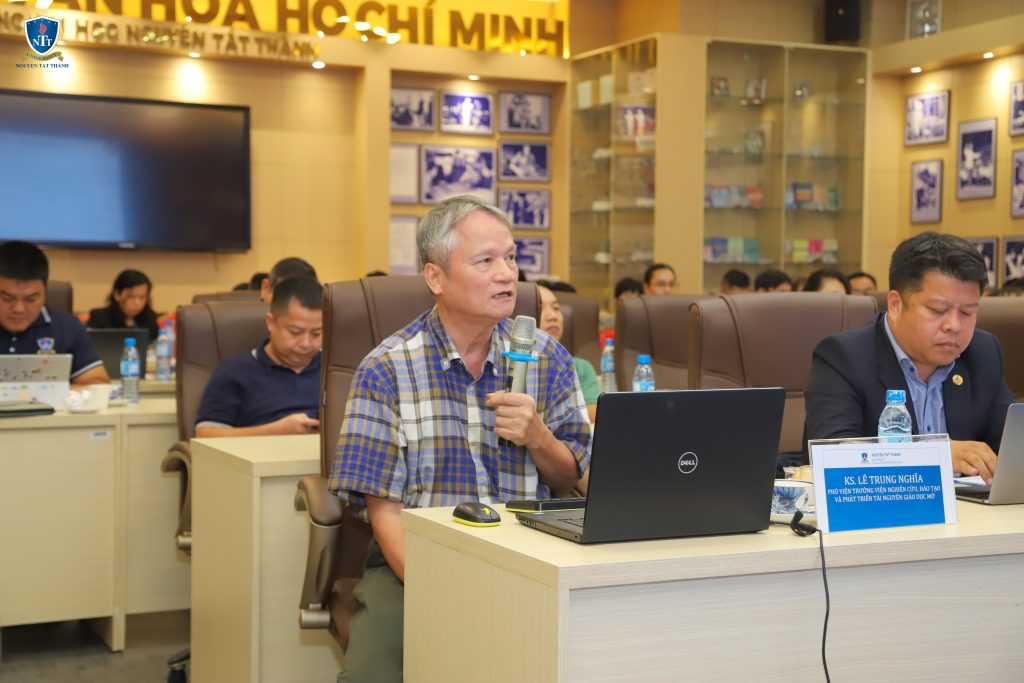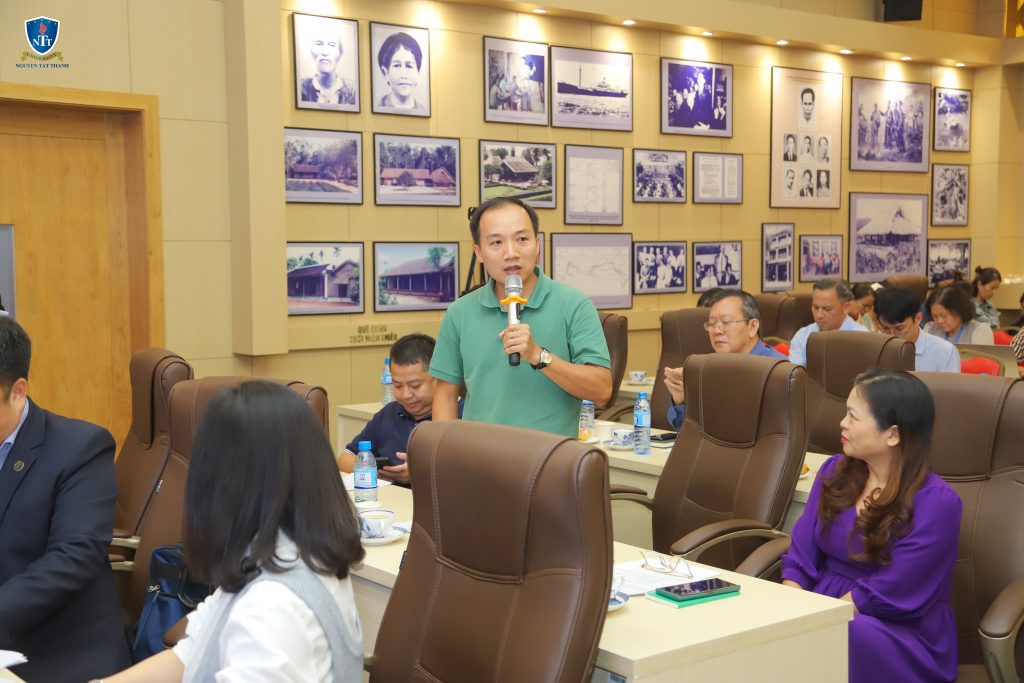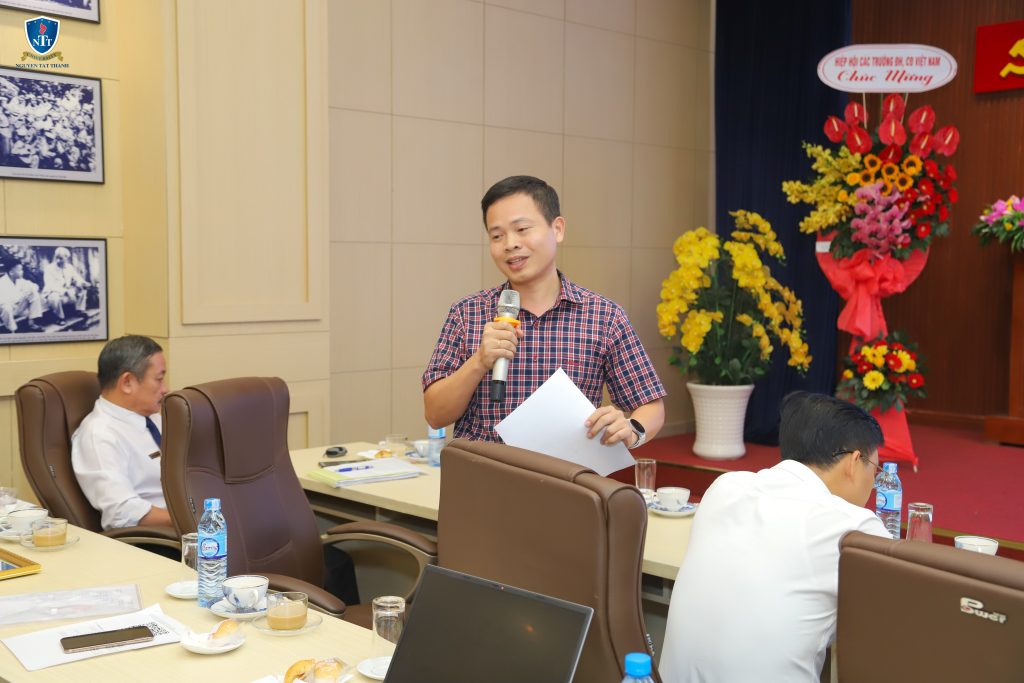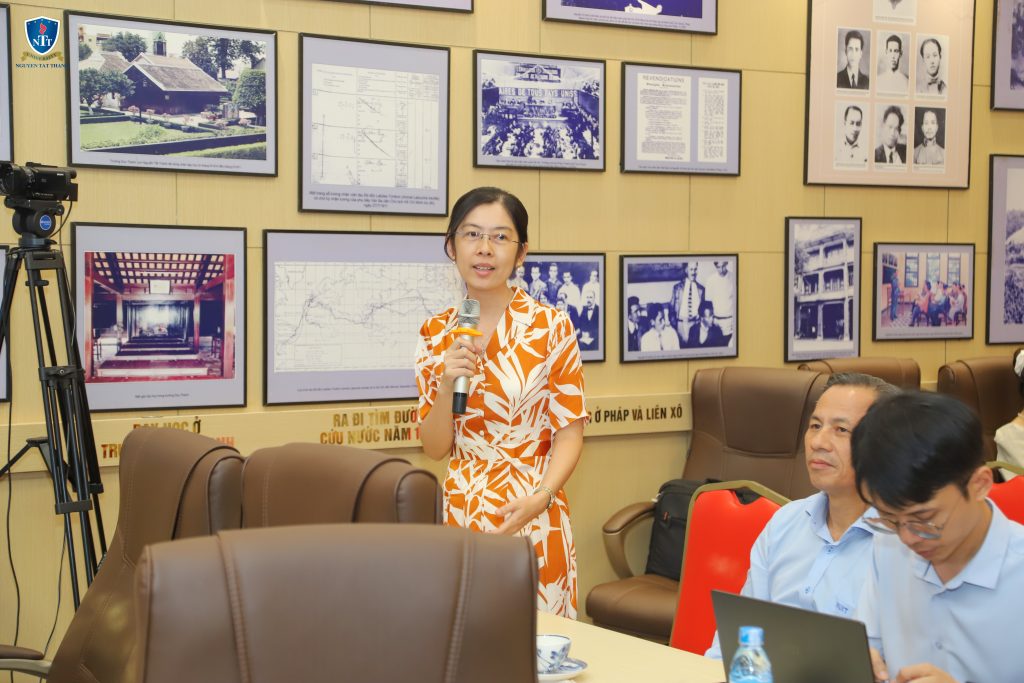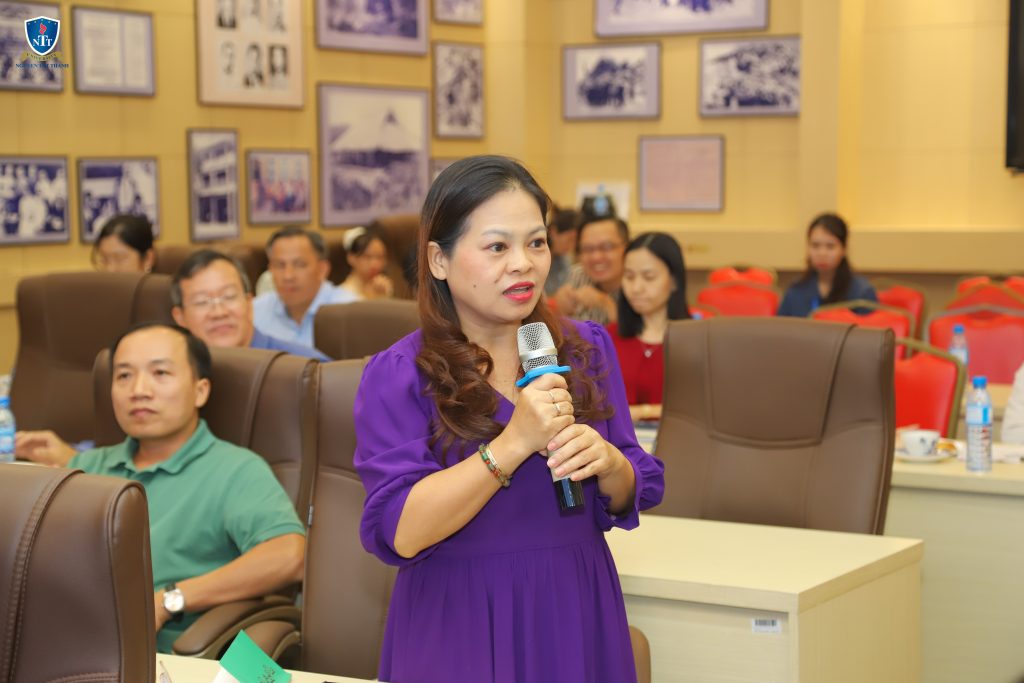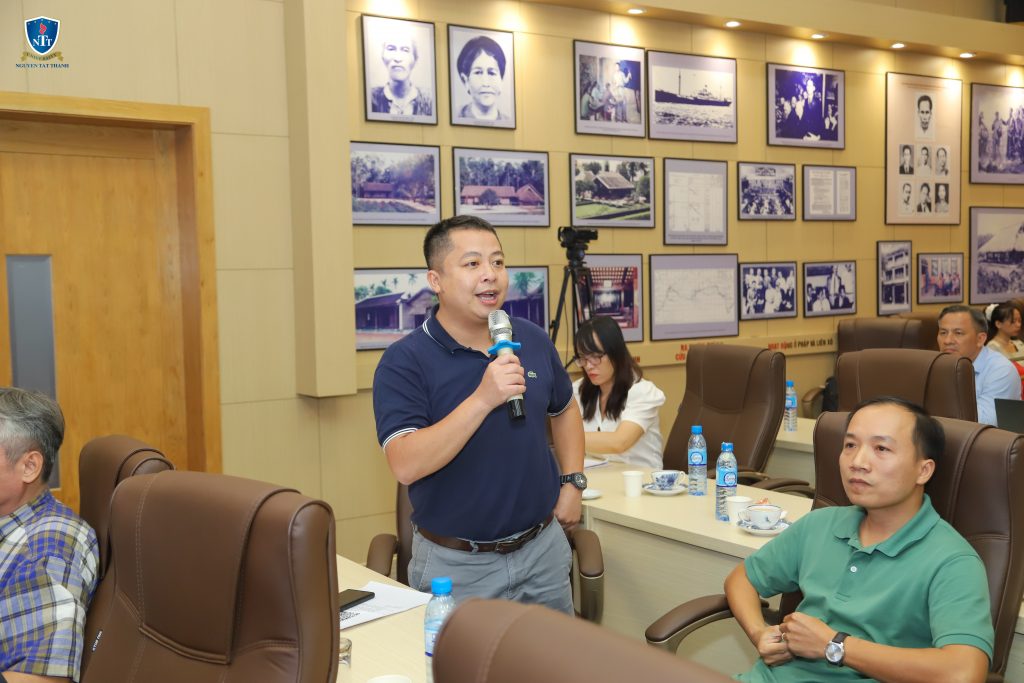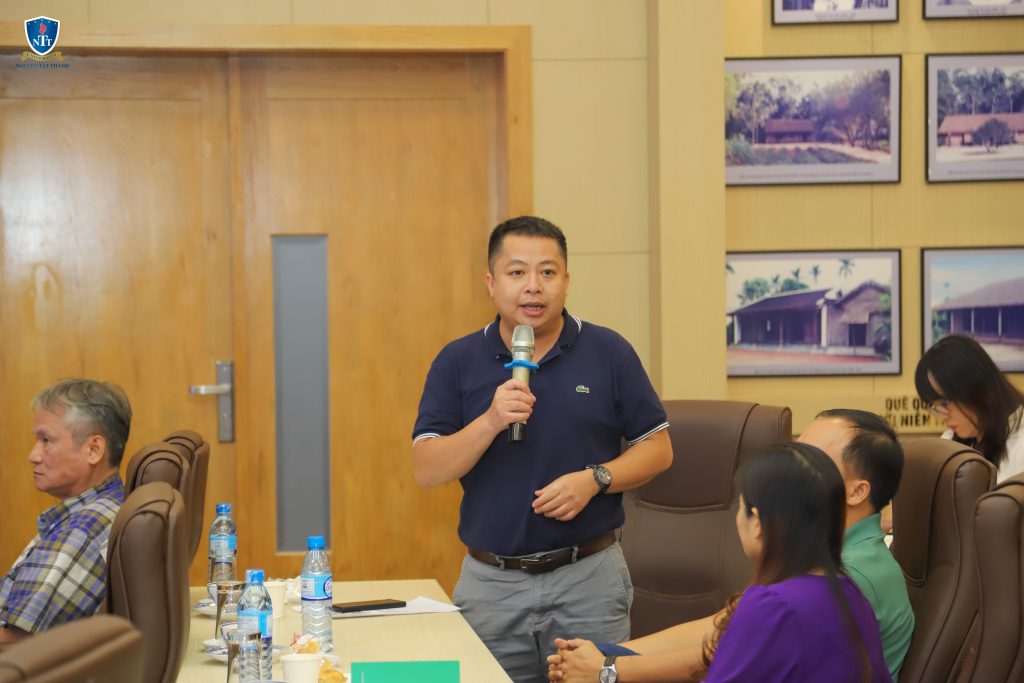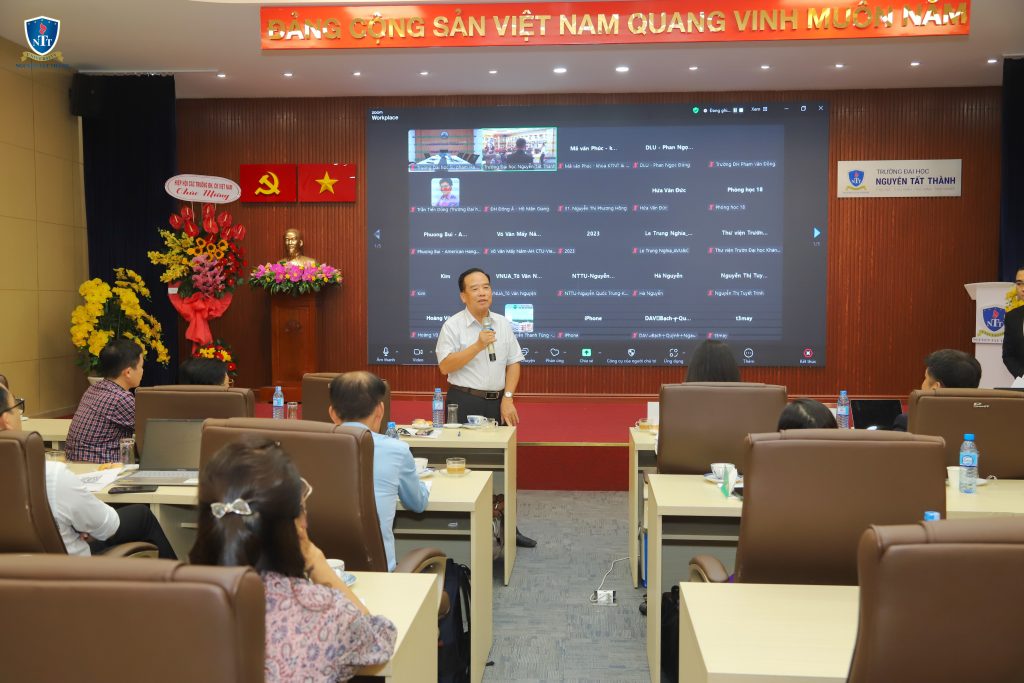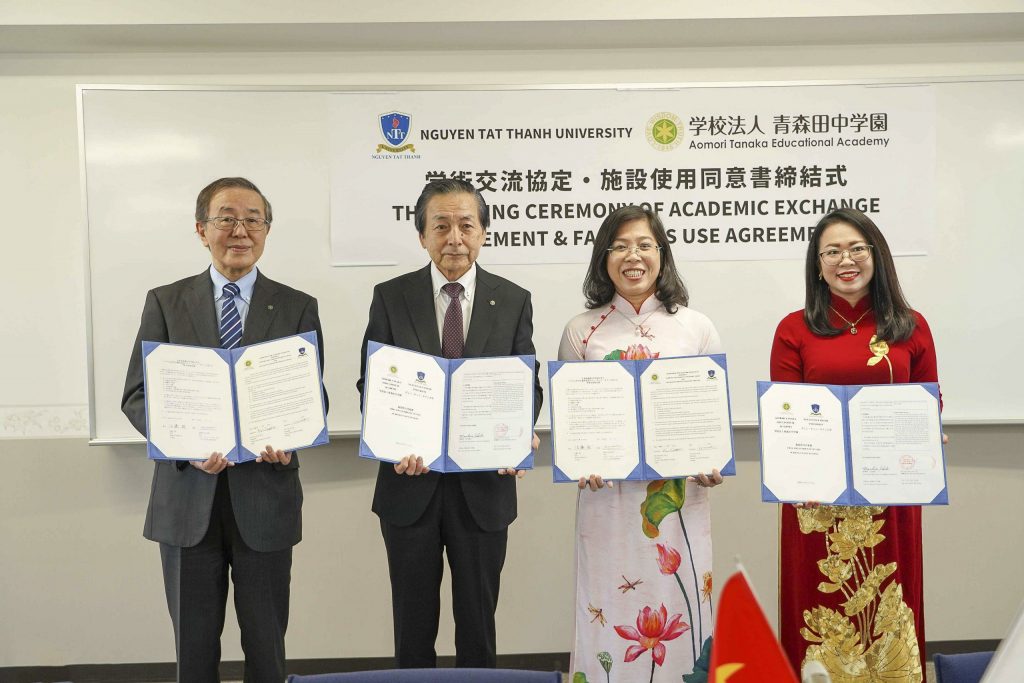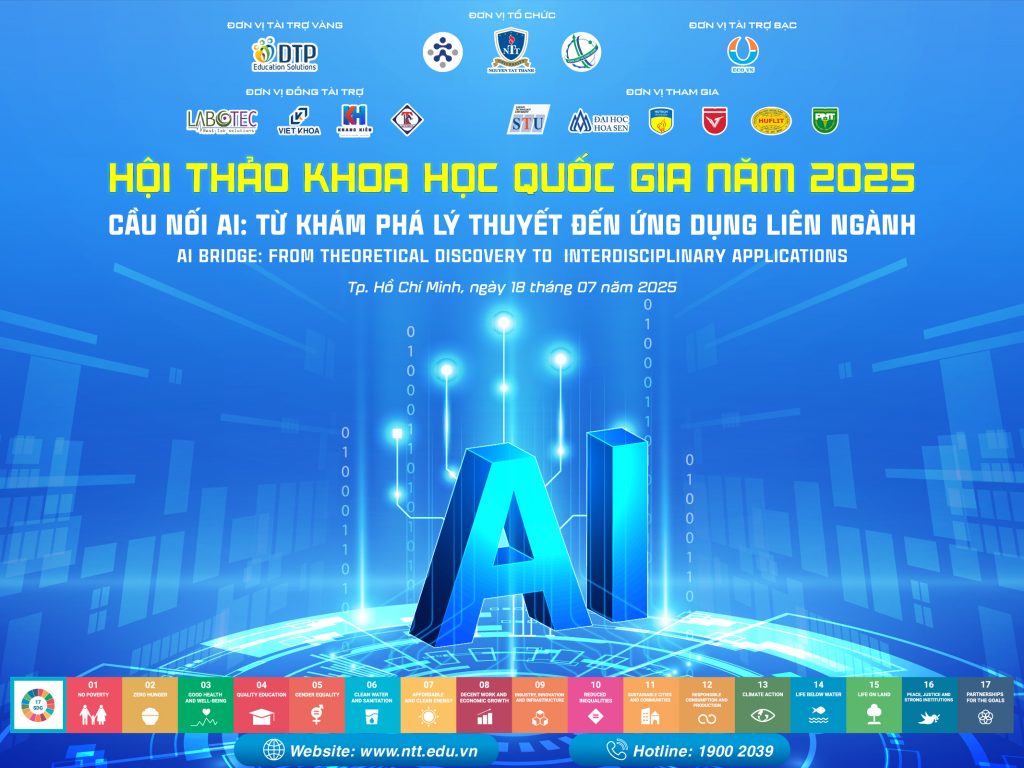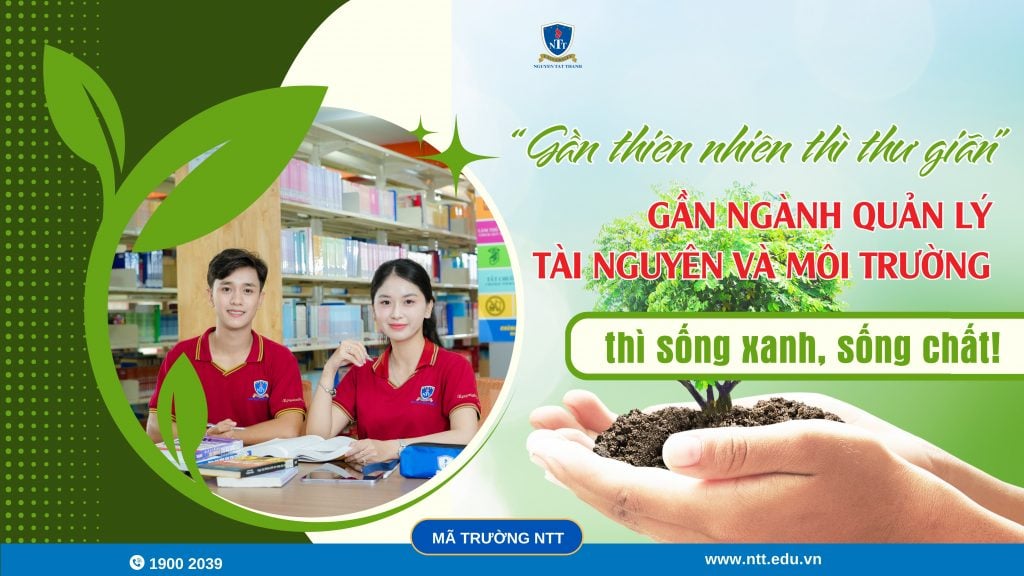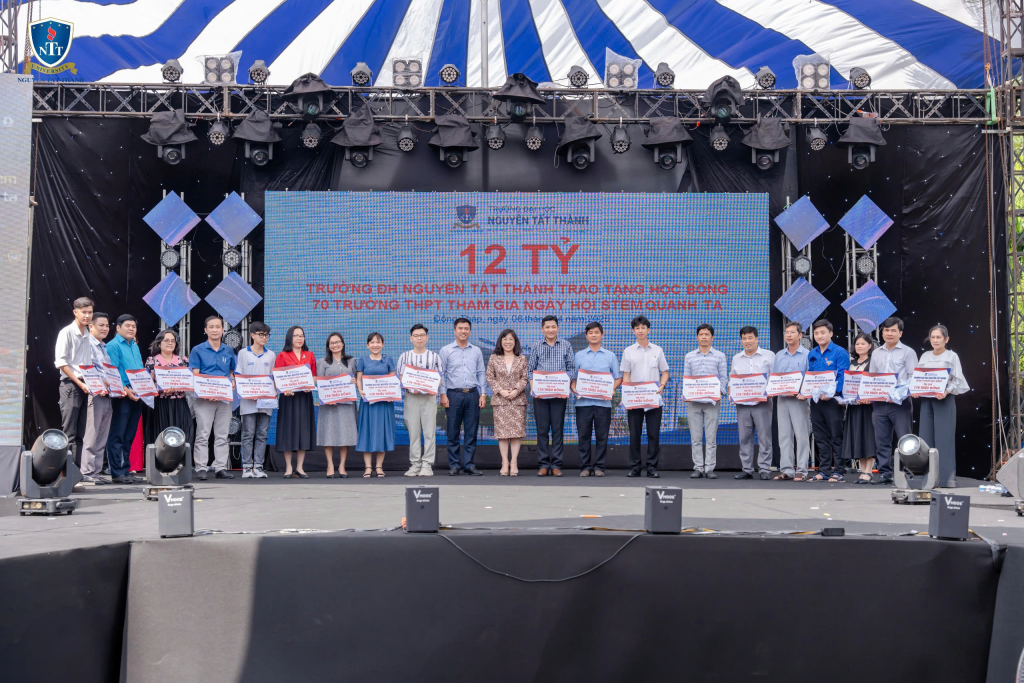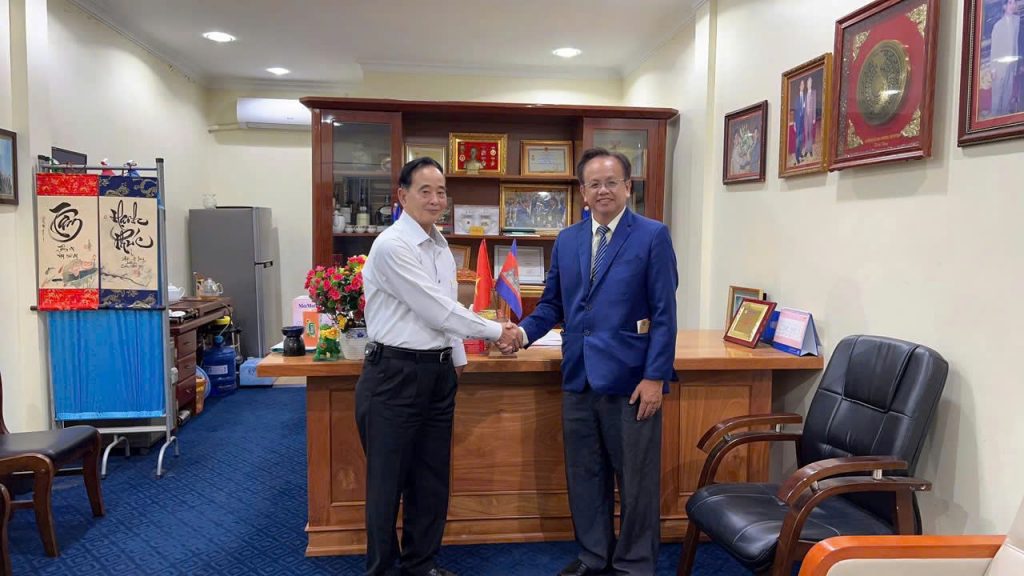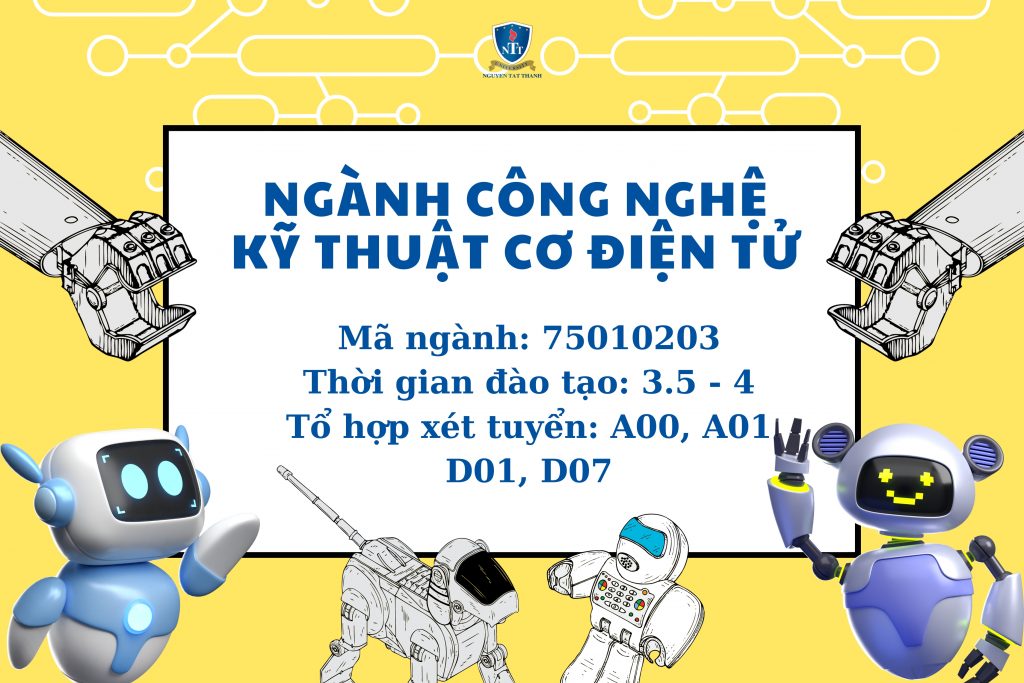Seminar on ‘Sharing Experiences in Implementing Open Educational Resources in University Libraries in Vietnam”
NTTU – The lack of quality learning materials for teaching, studying, and research is a major issue in Vietnamese universities, affecting the quality of education and research at these institutions. Open educational resources (OER) are considered a viable solution to this problem. OER can help universities improve the quality of human resource training and self-sufficiency, thereby supporting sustainable development.
With the desire to share experiences and enhance collaboration among universities, organizations, and individuals in building and developing open educational resources to improve the quality of training and research, Nguyen Tat Thanh University, in cooperation with the Open Education Club of the Association of Universities and Colleges, organized a seminar on “Sharing Experiences in Implementing Open Educational Resources in University Libraries in Vietnam” on October 1, 2024. The seminar was held in both online and in-person formats, attracting the participation of 200 delegates from universities and research institutes.
Attending the program were Dr. Nguyen Duc Trung, and Dr. Nguyen Thao Huong, Senior Specialists of the Higher Education Department, MOET (participating online).
From the Department of Education, the Central Propaganda Department, Assoc. Prof.Dr. Le Huy Hoang, Deputy Head (participating online), attended.
From the Vietnam Association of Universities and Colleges, Dr. Vu Ngoc Hoang, President and former Central Committee Member (participating online); Dr. Le Viet Khuyen, Vice President in charge of professional affairs (participating online); and Mr. Pham Ngoc Lan, Member of the Executive Committee and Head of the Member Affairs Department were present.
Representing the Open Education Club was Dr. Le Nguyen Quoc Khang, Vice President of Ho Chi Minh City Open University and President of the Open Education Club. Additionally, representatives from various universities and research institutes attended, including: Phuong Dong University, Ho Chi Minh City Open University, HUFLIT University, Nghe An University of Economics, Dong A University, Phu Xuan University, Hanoi University of Education, Khanh Hoa University, University of Technology and Industry, Thai Nguyen University, Can Tho University of Technology and Industry, Long An University of Economics and Industry, ect.
Representing Nguyen Tat Thanh University and the organizer was Dr. Tran Ai Cam, the President, along with heads and deputies from various units, departments, faculties, institutes, and centers within the University.
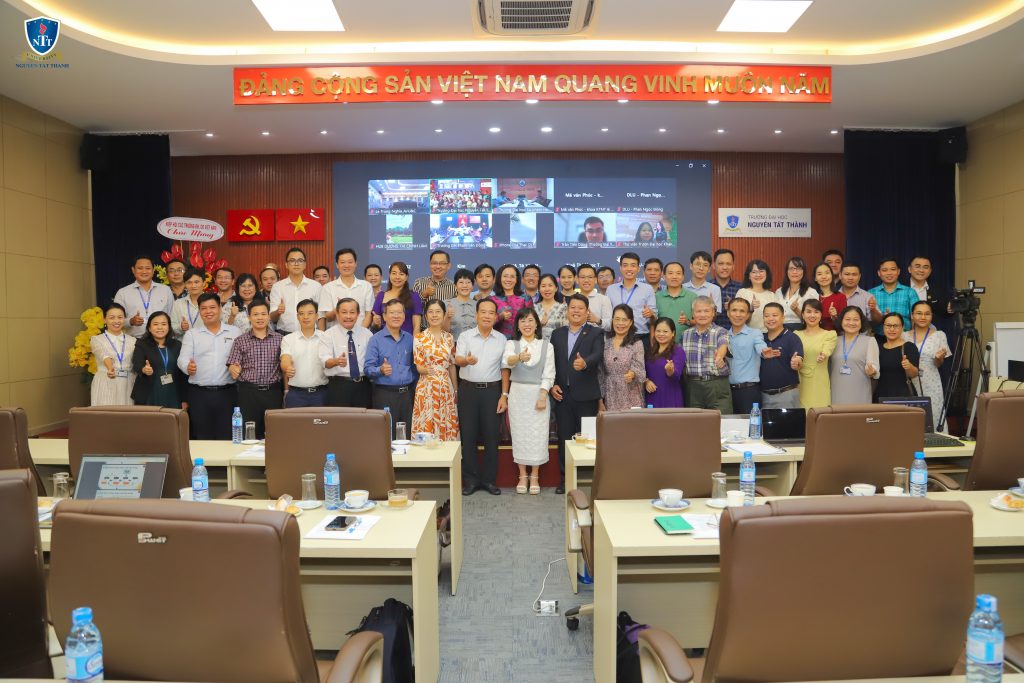
In her speech, Dr. Tran Ai Cam, the President of the University, expressed her hope that the seminar would provide university administrators, experts, lecturers, researchers, and relevant departments an opportunity to share and exchange experiences in implementing open educational resources. She emphasized the importance of collectively contributing ideas toward establishing an ecosystem of open educational resources for Vietnamese universities, which would help successfully achieve the goals of the program to build an open educational resource model as outlined in Decision 1117/QĐ-TTg by the Prime Minister.
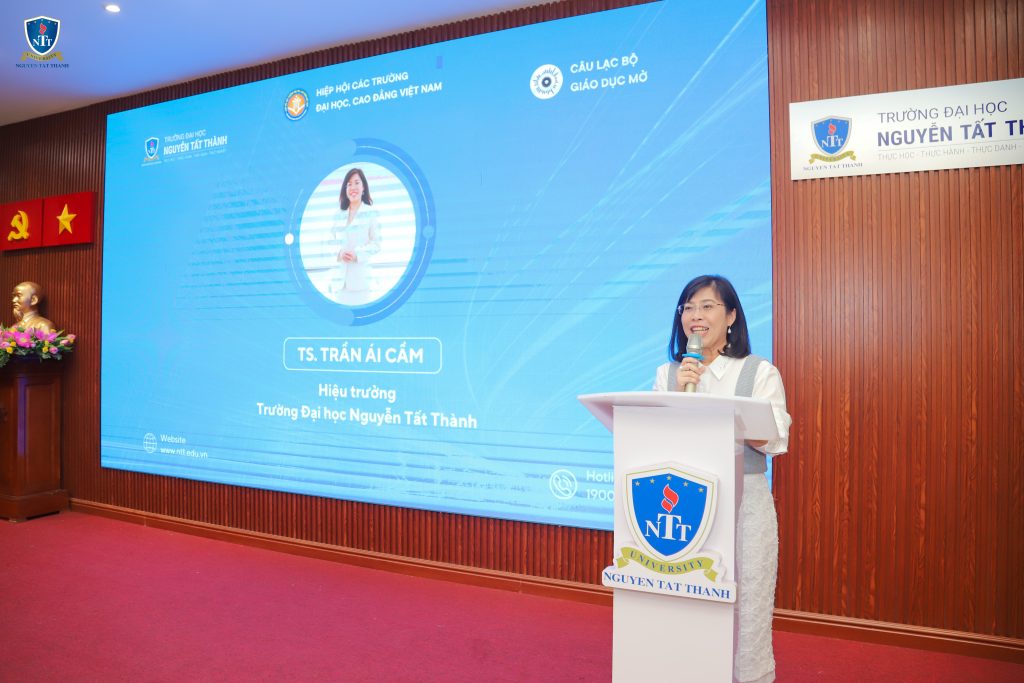
Dr. Tran Ai Cam, the President of the University, hopes that the seminar will bring many benefits to educational institutions in building open educational resource models.
She also emphasized that open educational resources represent a long-term orientation and foundation for the University to achieve Sustainable Development Goal 4 (SDG 4) — “Ensure inclusive, equitable quality education and promote lifelong learning opportunities for all” — one of the 17 Sustainable Development Goals of the United Nations. Nguyen Tat Thanh University has been implementing this goal in the THE Impact Ranking, which assesses higher education institutions based on their impact on sustainable development.
Also, within the framework of the seminar, Dr. Le Nguyen Quoc Khang, Vice President of Ho Chi Minh City Open University, expressed gratitude to Nguyen Tat Thanh University for coordinating to organize this meaningful seminar. He also hoped that through this seminar, the implementation of open educational resources at universities in Vietnam would grow stronger, and that institutions would develop a unified model for organizing and utilizing open educational resources across an integrated system. This would lead to widespread the model nationwide, contributing to the goals of the Government’s Program for Building an Open Educational Resource Model in Higher Education.
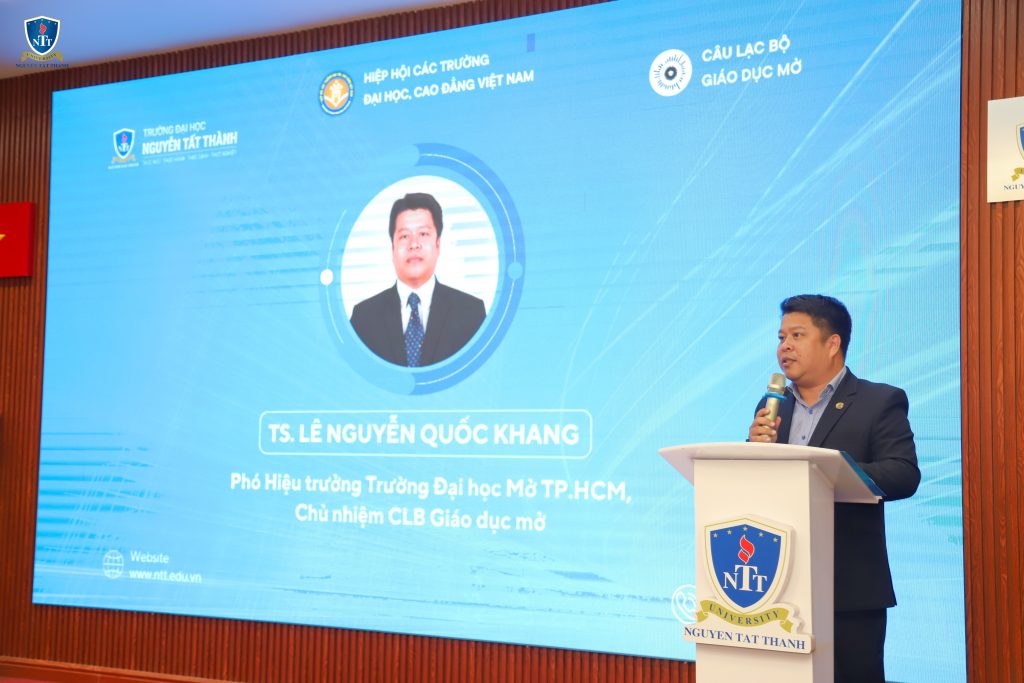
Dr. Le Nguyen Quoc Khang, Vice President of Ho Chi Minh City Open University, speaks at the seminar
At the seminar, many presentations and speeches focused on four main topics. The first presentation discussed “Some Results of Implementing Open Educational Resources at Nguyen Tat Thanh University,” highlighting initial achievements in applying open educational resources at the university, which contribute to improving the quality of training and research. The second presentation, titled “Fulbright Open Resources: Opportunities and Challenges,” addressed the opportunities and challenges in applying Fulbright’s open resources, drawing on experiences from the Massachusetts Institute of Technology’s open resource initiative. The third presentation focused on “Some Issues in Developing Technology Systems and Open Courses (HOU MOOCS) for Online Training at Hanoi Open University,” emphasizing the role of MOOCs in education and digital transformation. Finally, the fourth presentation provided “Suggestions for Implementing Open Educational Resources at Universities in Vietnam according to Decision No. 1117/QĐ-TTg,” offering recommendations and guidelines on how to implement open educational resources at universities.
Presenters delivered their talks
At the end of the reporting session, delegates and experts engaged in in-depth discussions about the importance of open educational resources. They also shared experiences that would aid in the application and implementation of open educational resources in the digital age.
Presenters share and discuss
The seminar was a meaningful activity for sharing information resources and exchanging knowledge, which has become a dominant trend in modern education. In higher education, open educational resources play an important role in enhancing the quality of training and scientific research. When using open educational resources, faculty, lecturers, and students benefit in several ways: these resources are high-quality learning materials that are easy to update and revise; they provide opportunities to apply knowledge learned beyond the confines of the course; and they support self-study, independent research, as well as group learning and collaboration With the continuous changes and rapid development of science and technology, open educational resources enable lecturers and students to proactively access and update knowledge to keep pace with advancements, fostering lifelong learning skills.
News: Thiên Bảo – Phượng Nguyễn
Photos: Media

